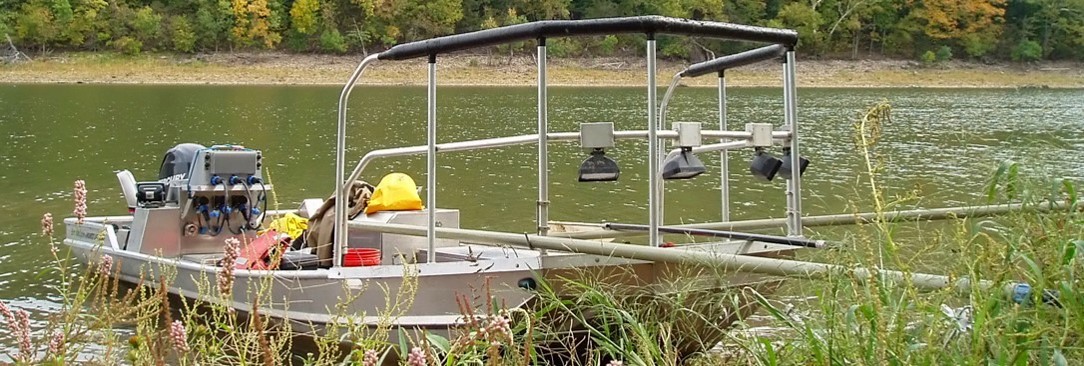Development of a Fish and Amphibian Rapid Assessment Protocol for Wetlands: Linking Management to Wetland System Processes

Objectives
-
1) Assess efficiency and effectiveness of a variety of sampling methods to determine probability of presence and species richness of amphibians and fish in MDC wetlands
2) Quantify effects of region, season, and habitat complexity on detection probability for amphibians and fish in MDC wetlands
3) Recommend standardized assessment protocol for use by MDC wetland area managers to evaluate amphibian and fish response to wetland management decisions
Overview
Manipulating water levels within wetland complexes mimics wetland ecosystem processes to ensure habitat conditions vary both in time and space to benefit a wide range of wetland-dependent species. Although providing seasonally flooded habitats to accommodate the needs of migratory water birds is a priority on Missouri’s actively managed wetland areas, these floodplain conditions are also used by a wide-variety of other wetland dependent species. Wetland dependent taxa such as fish and amphibians are much more difficult to detect, resulting in management decisions made with the assumption that an action beneficial to one suite of species will also benefit a wider range of species. However, there is uncertainty associated with this assumption. Monitoring to reduce the associated uncertainty allows managers to weigh the needs of a variety of species’ life history requirements and increasing awareness of the biological trade-offs inherent in their management decisions. Better informed management decisions based on monitoring could result in certain management actions that are delayed or expedited to benefit an alternate taxonomic group without sacrificing the primary management objective. Fish and amphibians are ideal target taxa to monitor in wetlands due to the perceived conflict of among taxonomic groups and certain wetland conditions. Many fish benefit from having access to the floodplain for foraging, spawning, migration corridors, and refugia. Amphibians benefit from having access to seasonal wetlands for breeding and larval development. Information regarding seasonal fish and amphibian species composition and use of floodplain habitats would help inform wetland management decisions. This would provide managers with a better understanding of how needs of lesser-known species can be incorporated into management actions without detrimental effects to more traditional management activities. Therefore, we will conduct a 2-year study to determine the best sampling methods to determine the presence of fish and amphibians in wetland in different regions of the state.